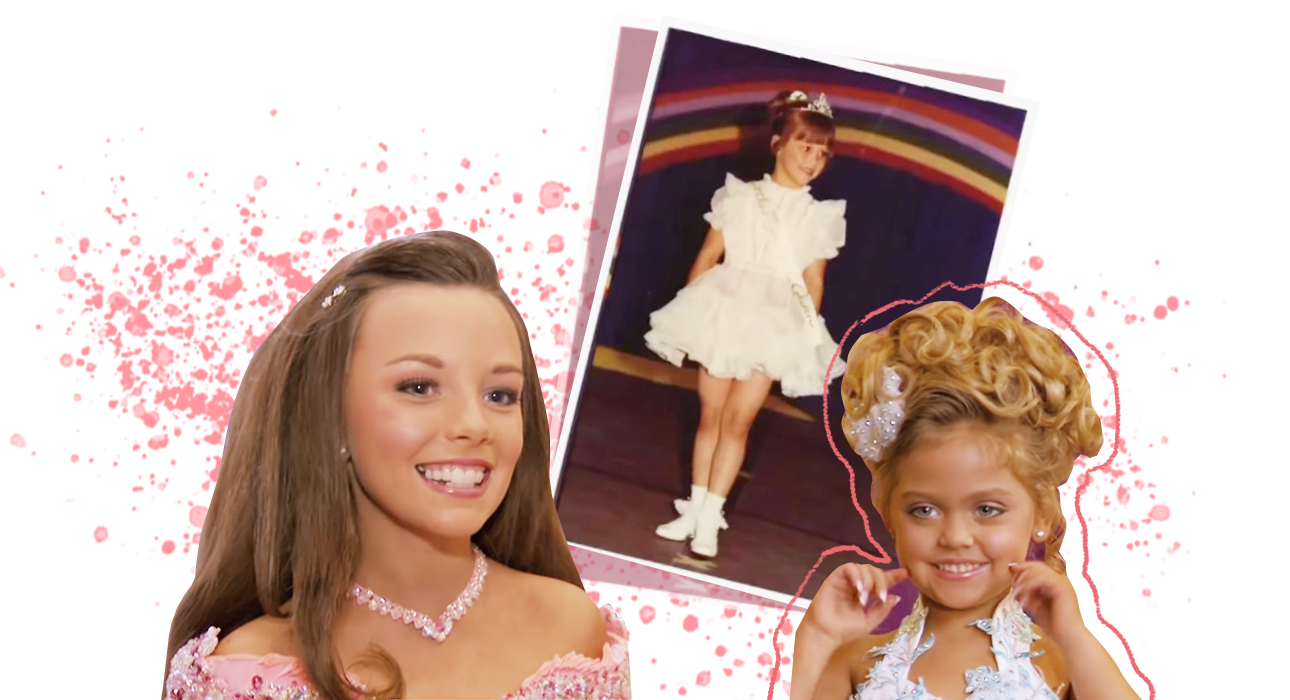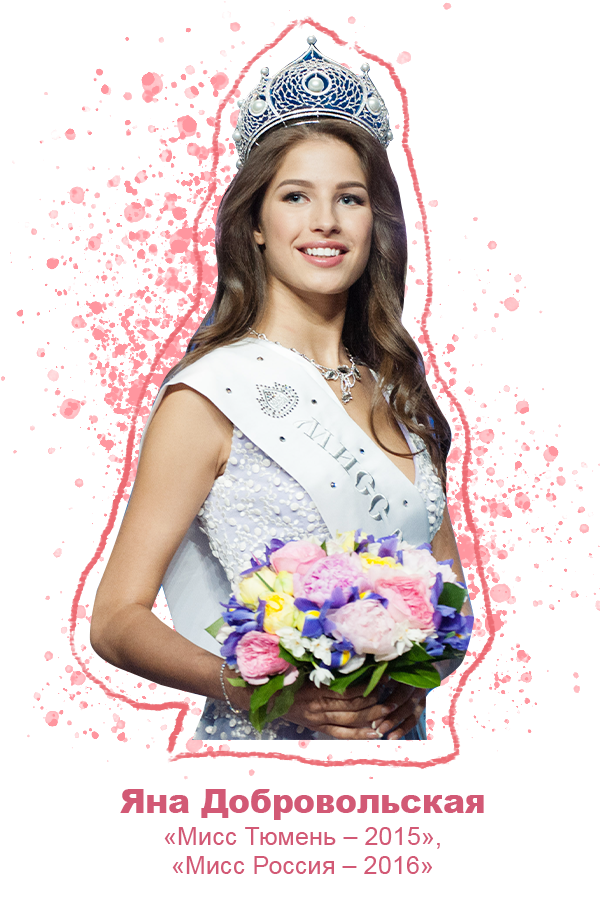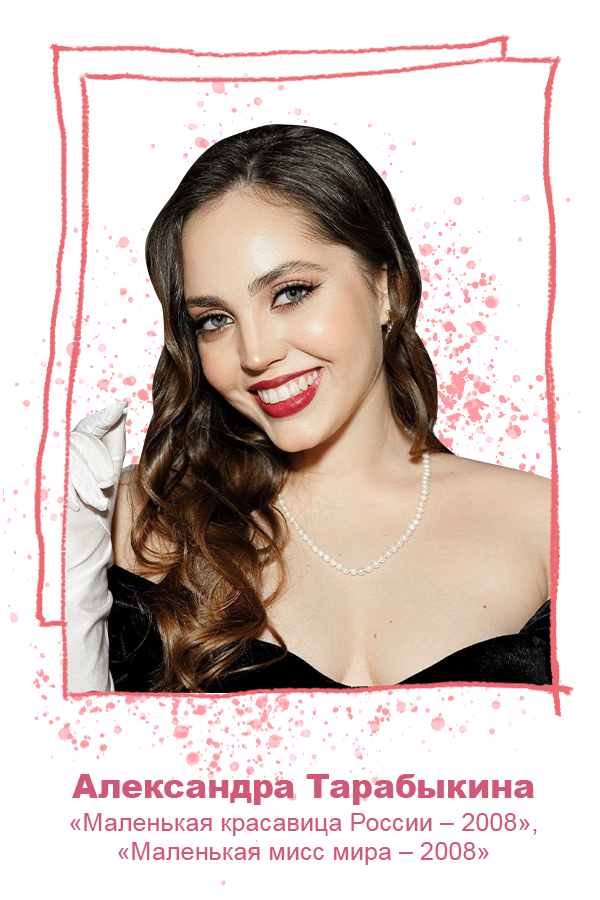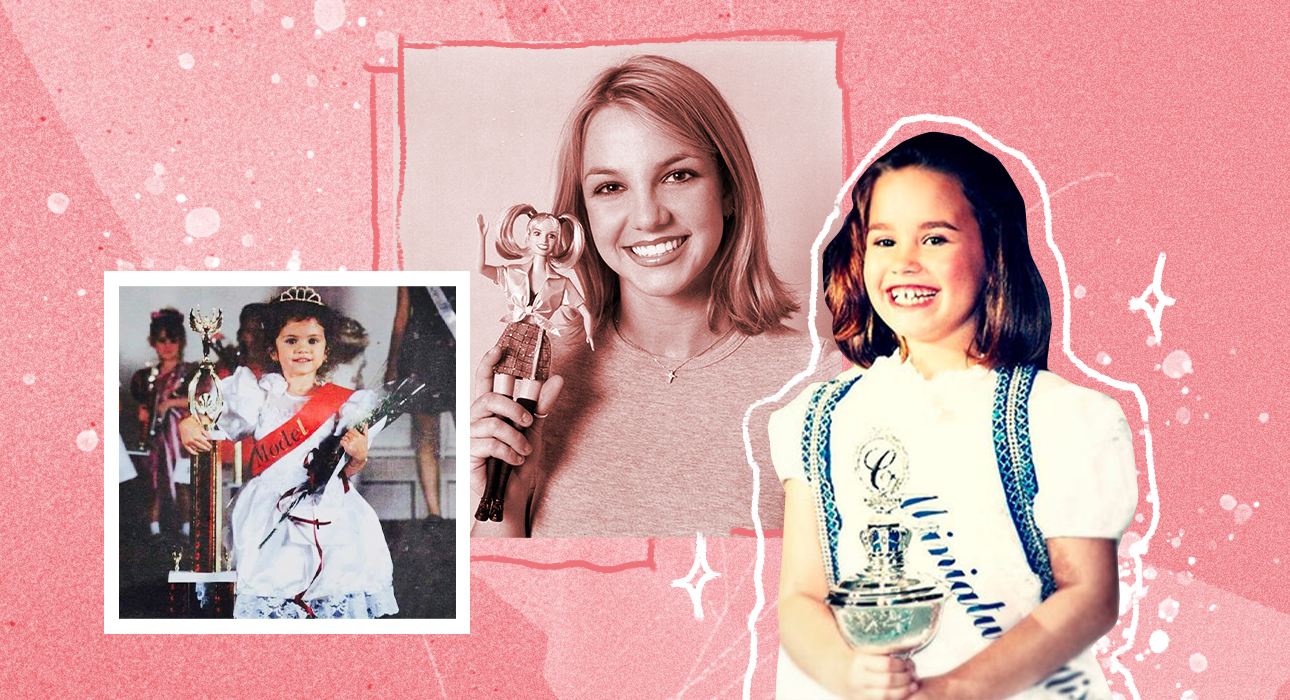The first prototype of modern children’s beauty contests appeared in America. According to one version, it was organized by the main showman of the 19th century, Phineas Barnum. In 1855 he organized the “National Children’s Show” in his museum. It gathered 60 thousand spectators and 143 children participated. Gradually, such shows began to spread outside of New York and attract more and more viewers. In 1904, Thomas Edison dedicated one of his first films to a historic competition held in Asbury Park (New Jersey, USA) – you can watch it here.
Organizers of city fairs liked such performances, and at the beginning of the 20th century a new type of competition called “Best Boy” appeared. The infant mortality rate was high at that time, so the task of such demonstrations was to popularize the rules of hygiene among parents. Children from several months to five years old participated in the competitions. Experts evaluated the babies according to physical and psychological characteristics such as height, weight, skin, fat and bone quality, mood and facial expression.
In the 1950s, all competitions were suspended – beaches, swimming pools, cinemas were closed due to the spread of polio, and of course it became impossible to organize events with a large number of participants. True, a vaccine appeared after a while, and in 1961 all young people gathered at the first official children’s beauty contest in the country. Organized by Palisades amusement park. Weekly Little Miss America pageants were held every summer for the next ten years. The name was chosen by analogy with the Miss America pageant, and children’s shows began to imitate adults almost entirely. This is it now.

Modern beauty pageants in America are a multi-million dollar industry in which parents sacrifice thousands of dollars and their children’s souls. Perhaps the most telling example of the latter is the story of eight-year-old Brittany Campbell, who was given botox and filler injections by her mother. Of course, to increase her chances of winning the competitions that her daughter regularly participates in.
In Russia, the competition “Little Mistress of Russia” is held both in individual districts (“Little Mistress of the Caucasus”, “Little Mistress of South Russia”) and at the federal level. every year. At one time they tried to fight it in the Krasnodar Territory, Tyumen, Ryazan and the Urals. But the only one who succeeded was Taimuraz Mamsurov, the president of North Ossetia. In 2011, the Alanya Children’s Supermodel contest was banned due to the “moral decay” of the children, and it was not held again after that. In other regions, it was not possible to affect the competitions in any way.

After a children’s swimsuit fashion show in Tyumen in 2013, parents wrote a mass letter asking them to ban the show. However, no decision has been taken regarding the cancellation of the competitions.
In the Krasnodar Territory, it was once forbidden to hold such shows, but now if you look at the news feed, we will see new entries about children’s competitions held there in the near future. In 2014, deputy Vitaly Milonov also tried to ban such events, even the bill was submitted to the State Duma, but in the end it was not approved.
In an interview with Nadezhda Strelets, psychology professor and coach Marina Melia says that children’s beauty contests, like talent contests in general, feed the ambitions of parents. And there are many examples of this among celebrities who have been severely traumatized by such shows. For example, since the age of three Britney Spears’ parents send her to all kinds of competitions: dance, vocals and, of course, beauty. Selena Gomez won the title of beauty queen at the age of four. Demi Lovato won the Miss Texas Little Cinderella title at age eight. And now the unpleasant statistics – each of the stars has now been diagnosed with “bipolar personality disorder.” I just want to ask – is this a coincidence? You know the answer yourself.
The parents and judges of the show don’t think about what the kids are feeling and how their spirits are coping. There is already quite a bit of research into how talent contests affect a child’s self-esteem. “It’s mostly bad,” says psychologist Maria Potudina. – Any competition, public performance in front of cameras and judges is even more stressful for an adult or even a child. His spirit, which has not yet grown stronger, is not ready for such a tension. The expectation that parents will love everything, the evaluation of unknown adults, the increased attention of the public can greatly hurt a child’s self-esteem.
Usually the competitors are divided into several age categories: 4-6; 7–8; 9–11; 12-14 years old. And allocate their “Miss” in each subgroup. The child’s basic attitudes, behavioral strategies, self-esteem are formed at this age, so the psyche is most vulnerable and vulnerable during this period.

Maria Potudina, psychologist and mediator
“At the age of 4-9, the child’s soul seeks to bond with an adult. This is done unconsciously, but at this age the whole nature of the child moves towards strengthening this connection. It needs it to survive. The younger the soul, the more established it is to seek approval, love and attention from an adult. And if participation in the competition wins with the approval of an important adult – this determines a certain strategy in the future. This is called a survival strategy. For example, attitudes such as “I am the most beautiful / the best / the weakest / the most friendly, but you can fall in love” occur. In this case, the child’s soul is forced to suppress its infantile needs. And it is precisely this kind of suppression of his own needs that becomes the strategy with which the child begins to live. True, it is basically laid out. Later, it bears fruit. For example, when already building relationships with a partner, the same strategy of being functional, beautiful, ideal will be used. It will not be a relationship based on love and acceptance.”
So, for example, in 2013, the French authorities passed a law prohibiting participation in beauty contests under the age of 16.
It may be a more traumatic victory than even entering the competition. It knows like no one else Yana Dobrovolskaya. At the age of 18 she won the Miss Tyumen 2015 beauty pageant and a year later became the owner of the Miss Russia 2016 title. Now Yana is a practicing psychologist and this is how she remembers her feelings after the victory.

“I faced a lot of hate when I won. In general, every winner faces this. A large amount of attention is drawn to you, and everyone, without exception, begins to evaluate that you are not better.
Everywhere you hear words like: “Why him? I see the girls on the street much prettier than this winner of yours. Everything is paid!” Yes, it is balanced with admiration and compliments addressed to you. But if a girl is not morally mature and it is quite difficult to do so even at the age of 18, competition will be a very unfavorable ground for her self-confidence.
Our other hero Alexandra Tarabykina He faced the envy of his peers. At the age of 11 she won the Little Miss Russia pageant and was subsequently crowned Miss Little World she.

“At first everyone is happy for you, the whole city and even all Russia knows about you. But at some point in school, all my classmates stopped talking to me. Maybe it was childish jealousy.
Then my parents had to transfer me to another class. Now, of course, I remember this situation with a laugh, but I understand that it left a certain mark on my soul.
Other consequences of beauty contests, which few people talk about, are that children must constantly “hold” their face, “stretch” their smile and no longer “squeeze”. Otherwise you won’t get the crown. The referees’ attention is completely focused on the outside. Therefore, a girl who is already an adult often perceives herself only through an external manifestation. So it acts according to the strategy developed in childhood – adults love me if I am beautiful and sweet. Hence, the inability to show their true feelings and even fear arises. Story Sasha Tarabykina confirmation of this:
“Once you become recognizable, everyone just sees a beautiful showcase in you. And you start to believe it. It wasn’t until I got old that my brain realized there was more to me than beauty. Then I started to heal and within a few years my weight increased by 20 pounds. When I discussed psychosomatics with a psychologist, I felt my emotions. I was told that I should show it. Frankly, I put up with it, I’m very kind, I help everyone, if I don’t like something I endure, I stay quiet and don’t show my emotions. The doctor believes that when I start showing my emotions, the weight will drop.
Of course, beauty contests aren’t just about cons. It also has a positive side. For many girls with whom we spoke, such performances still evoke only pleasant emotions. They taught them not to be afraid of the stage, to be open and to meet new people. But this happened only because the girls themselves also wanted to participate in the competition. They were not challenged by their parents or grandmothers, they just supported their independent decision. Maria Potudina says: “Adults are responsible for such shows. And above all, parents. Whether participation in the competition will affect future life depends entirely on how an adult presents it to the child, whether it protects him from an unsafe environment or if he turns a blind eye.

The child should live his childhood to the fullest, be as relaxed, carefree and frivolous as possible. And do not try on the role of a five-year-old adult. Only then can all its qualities bloom beautifully and correctly.
Source: People Talk
I’m Roger Gritton, and I’ve been writing for the The Fashion Vibes for over 5 years now. My specialty is beauty news; I’m passionate about covering the latest trends, products, and innovations in the industry. In my time there, I’ve become known as an authority on all things beauty-related.
I love discovering new experts to interview, researching up-and-coming ingredients and techniques that are making their way onto our beauty shelves and highlighting people who are making a difference in the world of cosmetics. My work has appeared not only on The Fashion Vibes, but also several other publications including the New York Times Magazine, Allure Magazine and Refinery29.





